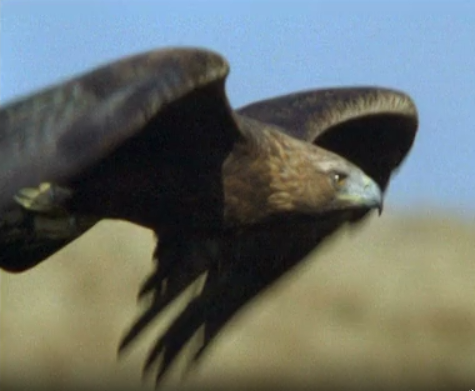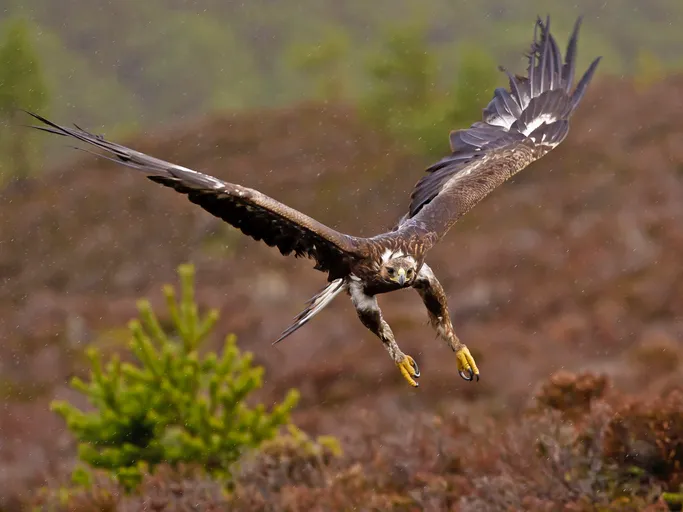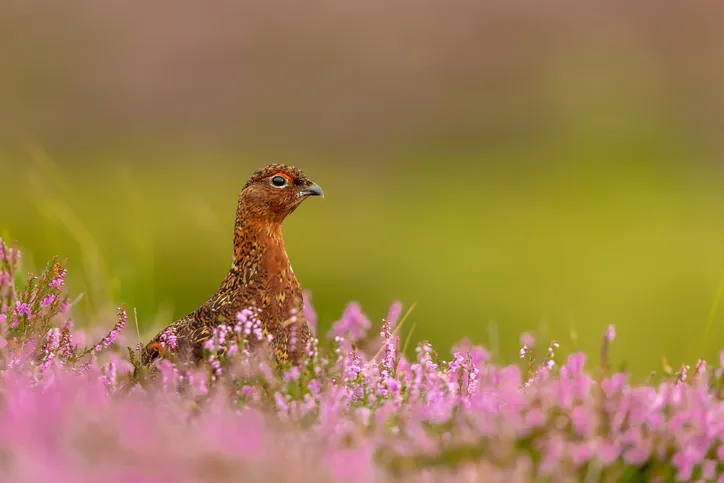
The illegal persecution of birds of prey has cast a long shadow across the UK’s countryside for many decades. Now though, a new law passed by the Scottish Parliament this spring aims to finally tackle the issue – and it could serve as a blueprint to address the issue in England, too.
Under the Wildlife Management and Muirburn Bill, the Scottish grouse industry will be regulated for the first time in its history in an effort to address the longstanding illegal persecution of birds of prey across Scotland.

According to the RSPB there were 488 incidents of bird of prey persecution in Scotland from 2007 to 2022 concentrated around grouse moors in the Highlands and Southern Uplands.
Conservation scientists and campaigners believe that birds such as golden eagles and hen harriers are being killed to prevent them from preying on red grouse, the main target species of the shooting industry.
And whilst raptors are currently protected by laws such as the Wildlife and Countryside Act, RSPB Scotland says that since 1990 nearly 60 gamekeepers have been prosecuted for raptor persecution.
At the heart of the law is the entirely new system for all Scottish grouse moors to be licenced.
This has been designed to act as a deterrent for landowners and shoot operators who now risk losing their licence if the illegal killing of raptors is found to have taken place on their land.
The other major change relates to muirburn, the system of the controlled burning of heather and grass to encourage new fresh growth for grouse, deer and sheep to feed on.
However, the system is highly controversial, with critics saying that peat heather uplands are globally rare habitats that are damaged by the burning, which can also lead to nesting birds to desert their nests.
And, as the climate crisis deepens, critics point out that peat uplands are an important, natural carbon store and when they are burned significant amounts of greenhouse gases are released.
Under the new law, an all-year licence will now be required to allow muirburn to go ahead, and it will only be permitted on peatland in limited circumstances.
There are also changes relating to the trapping and snaring of wild animals.
The new law prohibits the use of glue traps – trays coated with a sticky substance used to catch rats but which also run the risk of catching and killing birds, frogs and squirrels.
Also banned are snare traps – loops of wire which are used to catch foxes and rabbits.
Meanwhile, other types of traps, such as live capture or spring traps will be allowed in certain circumstances but there will be new training and licensing requirements to operate them.

Wildlife groups have welcomed the new law: “This is a huge win for nature and marks a significant moment in the history of land management in Scotland,” says Andrew Midgley from the RSPB.
“We hope that the new licences for grouse shooting will finally provide a meaningful deterrent that will eradicate raptor persecution.”
In response some sections of the Scottish grouse industry claim that the new law goes too far.
Peter Clark, the Scotland Director of the British Association for Shooting and Conservation says that: “We believe the final draft (of the Bill) still poses a risk to sustainable grouse moor management, predator control and muirburn and will be ruinous to the rural economy and the species that gamekeepers work to protect.”
Ross Ewing from Scottish Land & Estates, the organisation representing landowners adds: “Licensing of grouse shooting represents a seismic change for rural estates and their employees, including gamekeepers and shepherds.
“The legislation goes far beyond the stated intention of deterring the persecution of raptors by introducing a broad range of relevant offences under which licences can be suspended or revoked. Many of these offences bear no connection to land managed for grouse shooting.”
Despite this the Scottish Government stands by the aims of the new law: “This Bill is a significant step in our wider journey to ensure Scotland’s environment is managed sustainably,” says Scottish Agriculture Minister Jim Fairlie.
“We have struck the right balance between improving animal welfare, supporting rural businesses and reinforcing a zero-tolerance approach to raptor persecution and wildlife crime.”
Wildlife campaigners believe that the new Scottish law provides a model for England where the illegal persecution of raptors is still an ongoing issue.
“By passing the Wildlife Management & Muirburn Bill, the Scottish Parliament is offering a blueprint that could also herald the end of raptor persecution and improve the condition of upland habitats in England,” says Midgley.
“The move by the Scottish Parliament recognises the issues and the onus is now on the UK Government to follow suit so that birds of prey can be similarly protected in England.”










